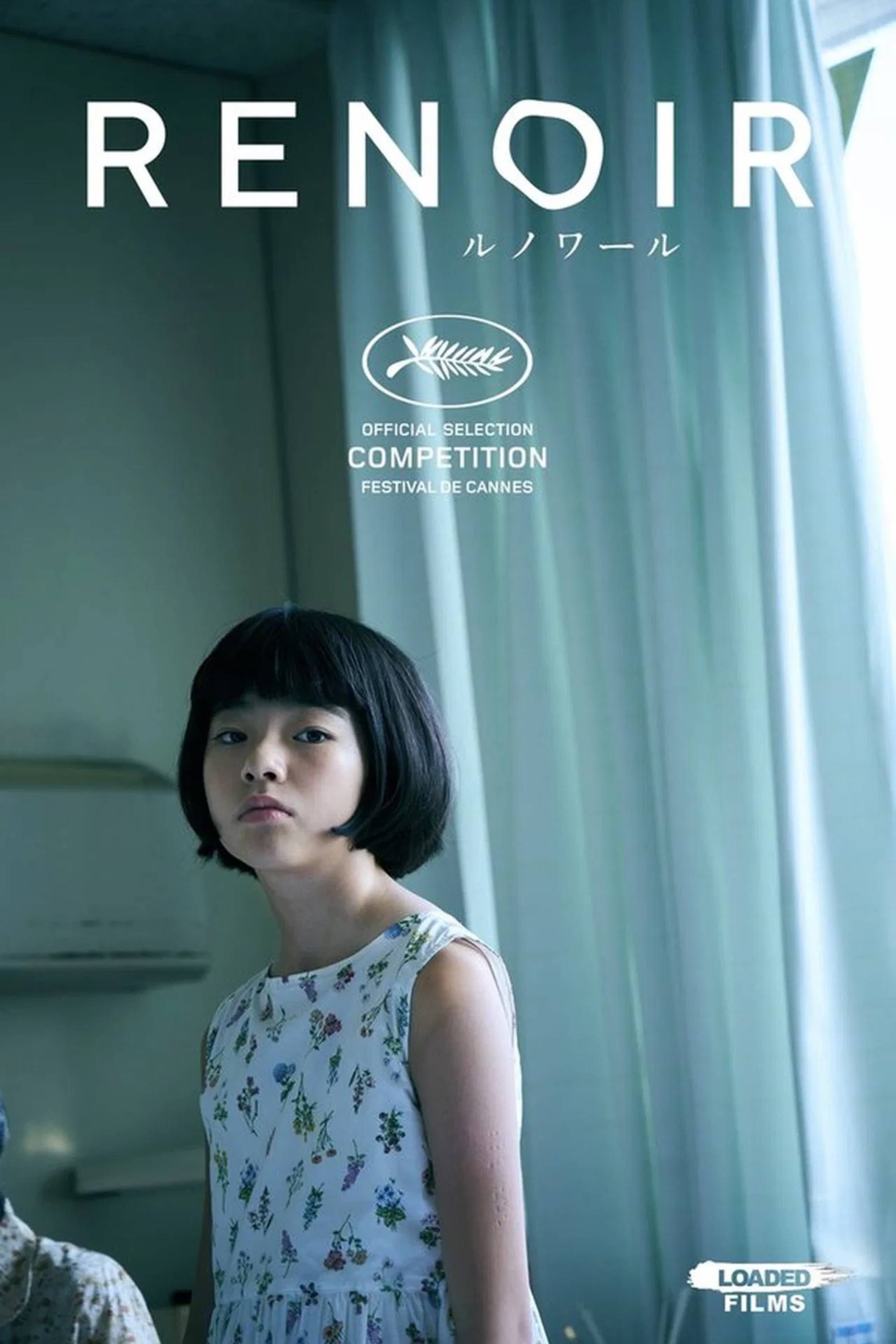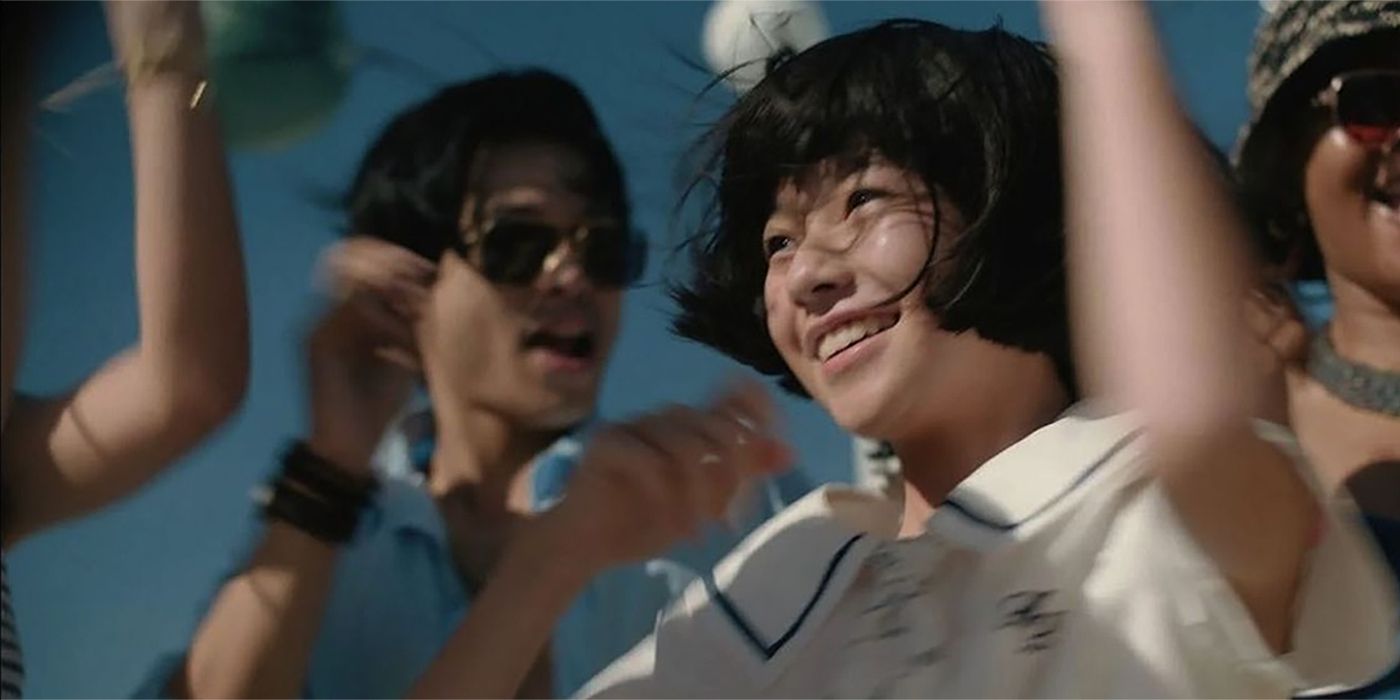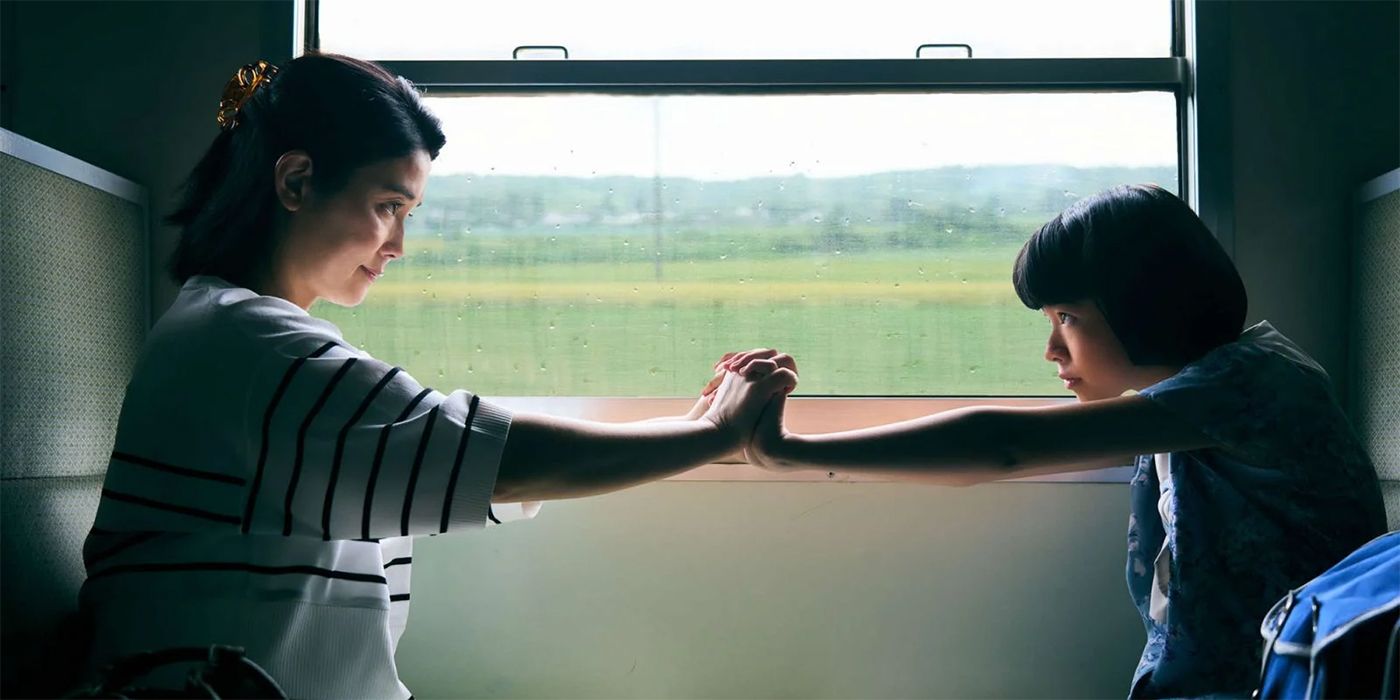
There are few moments in life more tumultuous or chaotic in life than the passing of a parent, especially when you’re young. This is the situation that young Fuki Okita (Yui Suzuki) must wrestle with in Renoir. Set in the late 80s, Chie Hayakawa chronicles the story of a family who must face one of the most difficult things in life as Keiji (Lily Franky), Fuki’s father, battles terminal cancer. Set in a more residential Tokyo, Renoir paints a quiet and muted picture of life through Fuki’s eyes. Although the film acts much like a slice-of-life, where we watch as Fuki matures during this transitional time in her life, the story still dips into darker storylines and offers a more multifaceted look at this family as opposed to the stereotypical. Moving, emotional, and ultimately cathartic, Renoir is a quiet and stirring coming-of-age story that reminds us of our own childhood and the impactful time that can be.
‘Renoir’ Tells the Story of a Family Where Everything Is About To Change
Fuki lives with her mother, Utako (Hikari Ishida), in a small apartment in Tokyo. While Fuki goes to school and takes English language tutoring classes, her mother works hard not only for herself and Fuki, but also for her ailing husband Keiji, who has been diagnosed with terminal cancer and is in his final days. Struggling with medical bills and the prospect of becoming a single parent, Utako often is focused more on managing their life than spending time with Fuki. Keiji, who is stuck at the hospital, is unable to move or do anything and pours himself into reading medical journals, hoping for a miracle cure.
Renoir primarily follows Fuki, who not only has a very active imagination, but she’s a typical curious 5th grader. With her parents somewhat missing from her life, Fuki fills her days learning magic, spending time at her friend’s house, and trying to feed her deep need to form connections with people. With an unsurprisingly morbid curiosity, Fuki is drawn to death and the supernatural; she dabbles in hypnosis and writes short stories about her own death. When she finds a phone number to a telephone dating line — where people leave voicemails with their details hoping to meet someone else — her search for connection takes her to a dangerous place.
While there is no inherent darkness or horror in Renoir, the film blends the grim realities of the real world alongside Fuki’s simple view of the world. The adults she comes into contact with range from flawed but well-intentioned to deceptively sinister, and it feels like Fuki is always on the precipice of losing that childish innocence. Though nothing bad ultimately happens to her, it’s undeniable that by the end of the 116 minutes of the film that Fuki is a different person from when we first met her at the beginning of her summer break.
‘Renoir’s Strongest Performance Is Yui Suzuki
Although Renoir is full of strong performances, specifically from Hikari Ishida as Utako, the star of the film is undoubtedly Yui Suzuki, who plays the 11-year-old Fuki. Suzuki embraces Fuki’s curiosity and eccentricities without artifice, and it often feels like we’re getting a glimpse into a real girl’s life rather than watching a film about a character. Suzuki dominates the screen, and whether she’s acting across someone her own age or an adult, she is captivating to watch. Fuki is a quiet girl but through her imagination and her interests, we can see her personality clearly.
When child actors are good, you barely notice it. They embody all aspects of a character who is not them and do it in a flawless way that makes you forget that it’s acting. When child actors are bad, it becomes all too obvious. Suzuki is neither cloying nor over-acting in her scenes — which are common issues that you see with younger actors — instead, she is delightfully aloof one moment and then agreeable the next. Embodying all that youthful impulsiveness and her little peculiarities, Suzuki doesn’t have to say a word for us to completely understand Fuki’s mental state.
And when she is acting across Ishida, the duo form a nuanced look at a mother and daughter who are preemptively mourning the loss of the man in their life. Utako is not overly militant as a parent, nor is she totally neglectful, and Ishida strikes the delicate balance that’s necessary to play this character. We understand that she’s a mother who is walking a very thin line that seems to get even narrower as the days progress. Although Renoir is a visually impressive film, the performances, specifically from Ishida and Suzuki, are what elevate it to the next level.
‘Renoir’s Story and Visuals Are Amazing, but Pacing Ultimately Is What Takes It Down
The careful way that Chie Hayakawa crafts her film is evident in every scene that we watch. There’s an astounding attention to detail that is also incredibly subtle, which lends to placing the performances front and center. The beautiful landscapes of the suburban parts of Tokyo and the nuanced cinematography know exactly what to focus on, even in a cluttered scene with many moving parts. However, what weakens Renoir is its pacing. And specifically, what holds it back is the fact that there are often too many moving parts that don’t all fully connect.
Thematically, the film is about finding connection. Utako and Fuki long for a connection that they can’t find in the family, but the vignettes of their search for connection, especially with Fuki, often ends up feeling too disjointed. We meet characters with distinct personality quirks and traits that spark our interest, but as quickly as they appear, they disappear. While it is important to follow Fuki specifically during this film, it is frustrating to develop an interest in supporting characters and quickly see them shuffled off after a couple of scenes. The film could have benefited from expanding some of these storylines to better reinforce the themes of the film and then cut the others that only end up feeling distracting. Particularly, Fuki’s dad, Keiji feels underdeveloped as a character, and although he serves primarily more like a catalyst of the story, there is unmined potential there with his story that we never explore.
Still, despite these hold ups, Chie Hayakawa’s Renoir is a beautiful film, a quiet and measured exploration of grief, family, and the ties that bind us together. As we witness Fuki’s summer and her final moments with her father, we leave the film not just feeling sad for the little girl who lost her father, but hopeful that she will ultimately heal from this and move on and flourish despite her losses.

Renoir
Renoir is a beautiful film, a quiet and measured exploration of grief, family, and the ties that bind us together.
- Release Date
-
June 20, 2025
- Runtime
-
116 minutes
- Director
-
Chie Hayakawa
- Writers
-
Chie Hayakawa
-

-

Hikari Ishida
Utako Okita
- Yui Suzuki steals the show as the young Fuki in ‘Renoir.’
- Suzuki and Hikari Ishida are fantastic as mother and daughter duo.
- The film embodies the themes without making them feel forced or over-the-top.
- Some secondary storylines and characters feel unnecessary and ultimately drag down the pacing of the film.









